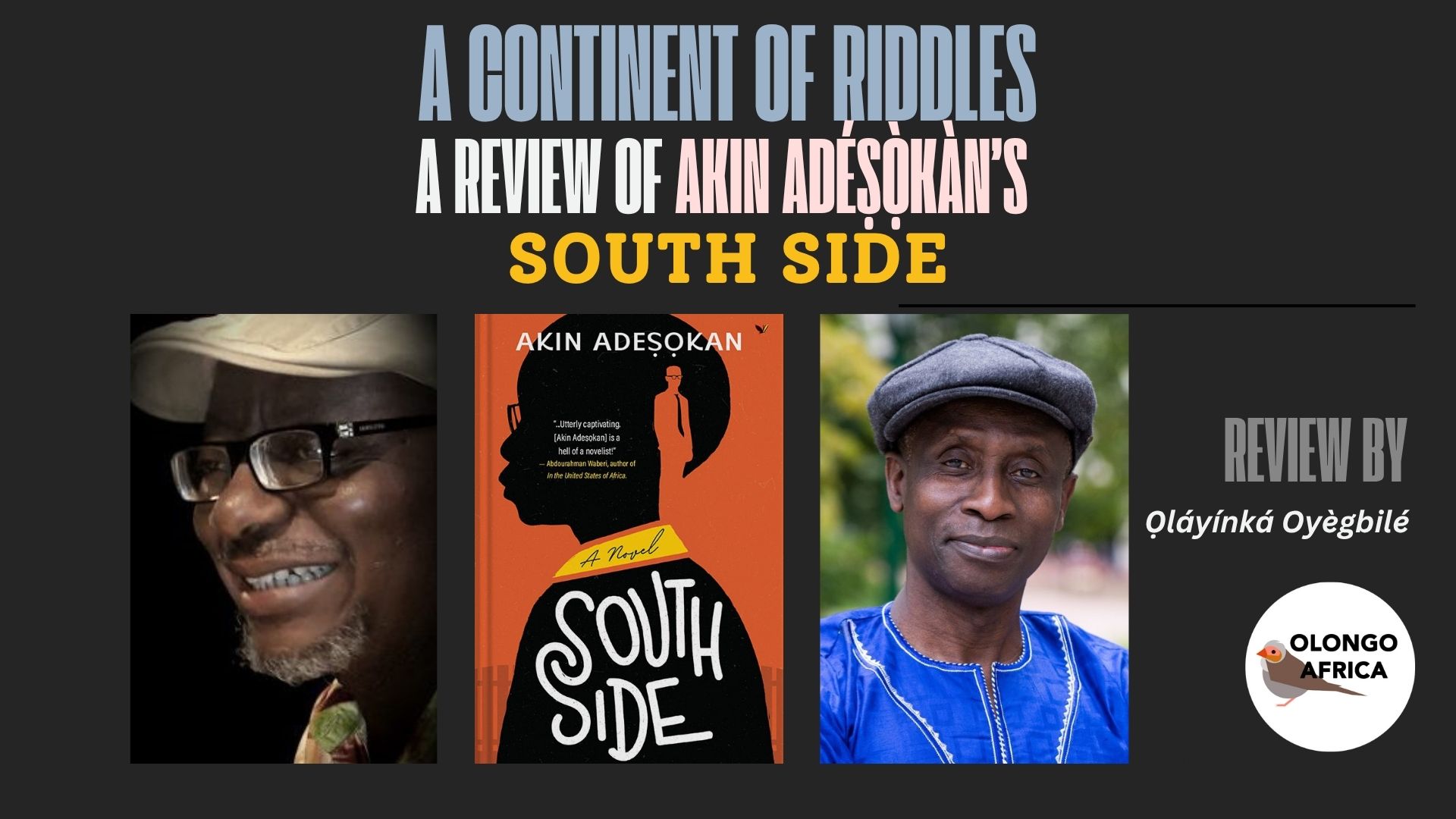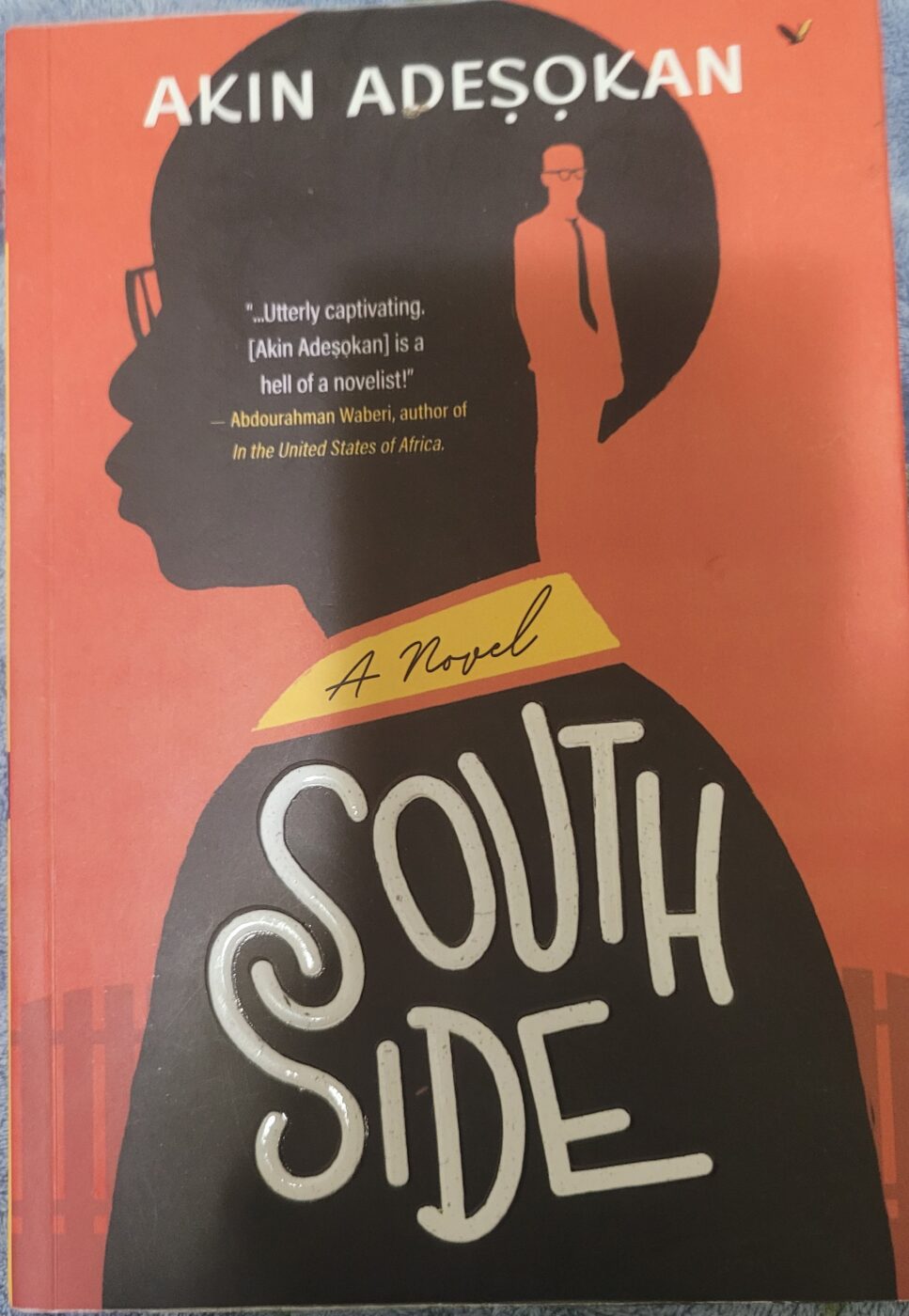
A Continent of Riddles : A Review of Adéṣọ̀kàn’s “South Side”
The strange thing about Africa is how past, present and future come together in a kind of rough jazz – Ben Okri
(A review of South Side, Akin Adesokan, Parresia Publishers, Lagos, 2025)
Abel Dankor is an itinerant writer whose life reads like the typical life of every or most Africans; stateless and always in transit not through their own choice but simply because it has been forced on them by circumstances beyond them. His birth on the sea when his parents were escaping from the topsy-turvy life in a country in distress; perhaps signals the kind of life he would eventually lead as an adult — always on the move. However, the good thing for him is that his constant movements did not affect his creativity as a writer of five bestselling novels.
A continent where leaders of thought are killed while despots or zombies who dance to the dictates and tunes of colonial masters are enthroned. Akin Adéṣọ̀kàn’s novel, South Side opens with the dreadful image gleaned from a document in a foreign library. It sets the tone for the book that it is about life and its trials, the story of a continent that is rich but poor at the same time. A fate thrusts on her through the acts, omissions and commission of its leaders, exploiters and short-lived messiahs.
The fictional country, Mande, could be anywhere or any of the countries in Africa where incessant coups d’etat have become the rule rather than the exception. Think of Democratic Republic of Congo, Sudan – south or north – etc. The characters depict many of the personages of history that have peopled the continent. From the ‘saviours’ to dacoits, rebels and the demented. The reader comes across images of patriots such as Patrice Lumumba, Thomas Sankara, Kwame Nkrumah, Adul Gamar Nasser as well as detestable characters such as Jean Bedel Bokassa, Idi Amin, Mobutu Sese Seko, and other such images that evoke different pathos and passions. The exploiters of the rich minerals of the Congo and other mineral-rich countries, the igniters of crises across the continent and those who serve as channels or vessels and weapons for colonisers to keep down the rich continent from realizing its potential.

The stateless Dankor had been thinking of making Mande home where his mentor, a forward-looking politician and writer had been poised to become leader before he was killed. He had to look elsewhere. And with this killing, Dankor’s further statelessness becomes lengthened. He asks, “why was it that everywhere we went on the continent…we always encountered several factions of the freedom fighters, this called “popular front” that “people’s movement,” that other “liberation front,” still another “revolutionary union”? Were these a sign of diversity or division? How to explain the mindless bloodletting – the cynical murders of one’s neighbours…” (p247). Endless questions with no answers.
In between his statelessness and loss, he becomes embroiled in love affairs as are wont with writers as he moves from one writing residency to another. From one arm to another he lives the peripatetic life of a writer in search of his soul and the essence of life in a traumatized continent. After many back-and-forths, he later finds himself back in Mande where he thinks he is going to find solace by falling in love with Jilo, a medical doctor. However, his choice is tied in a lifelong bond or early covenant that had been entered into by her parents — what in biblical Christian world is referred to “ancestral covenant”. Jilo, who has been a sickly child, was healed by a dibia. The parents had, in return, promised (covenanted) that she would be married to him. This was done without her consent.
Now, she’s a grown-up and a successful medical doctor who has devoted her life to medicine and the service of the unreached communities, moving from one village to another to dispense medication and make the sick well. In the course of her work, she contracts a disease and becomes bedridden. Dankor meets her parents by her bedside. Who is to have her? The dibia or Dankor? The riddle is finally resolved with her death. None of the two forces had her. Is this a triumph of “ancestral covenant” or the triumph of the personal will of Jilo over that of her parents?
In the horizon is also his childhood friend Yacouba who is returning home to play a crucial role in his country’s political landscape and this in a way makes Dankor to be ambivalent. How does he react to this when his friend is dabbling into the murky world of politics? Does he support him or remain passive, knowing the vagaries of such on the continent?
In South Side, Adéṣọ̀kan’s second novel, the novelist succeeds in parading the movers and shakers of the African continent: the villains, the saints, heroes and the depressed and oppressed. He has in this one novel told the story of the continent in a masterful way that encompasses all that have ailed and continue to hold the continent down. If you want to know why Africa is not great, why it is going to be great, how to make it great, who those who are blocking its greatness are, and how do we deal with them, then read this novel. Adéṣọ̀kàn’s first novel, Roots in the Sky, won the Association of Nigerian Authors Prize in 1996. A professor of comparative literature, cinema and media studies, the novelist is also a translator who has translated Isaac Délànọ̀’s Yoruba novel into English. He has also published critical works on postcolonial and global aesthetics. He teaches at the Indiana University in the United States of America.
Dr Oyègbilé is a journalist, writer and media scholar
